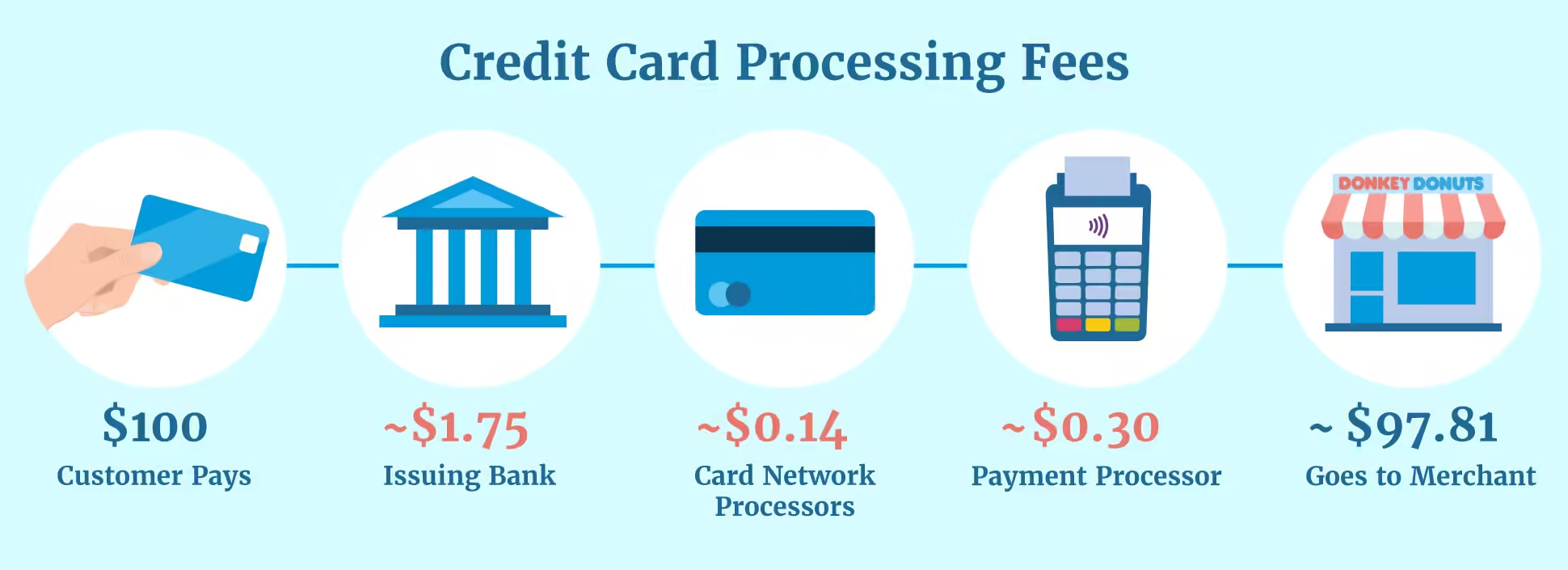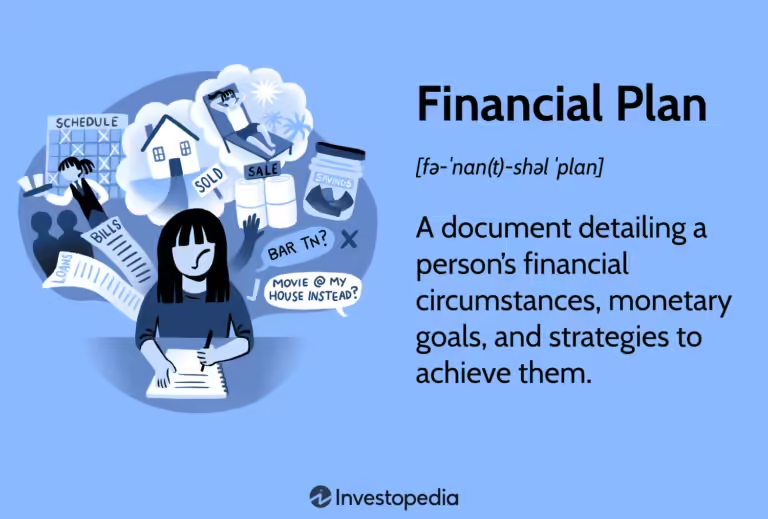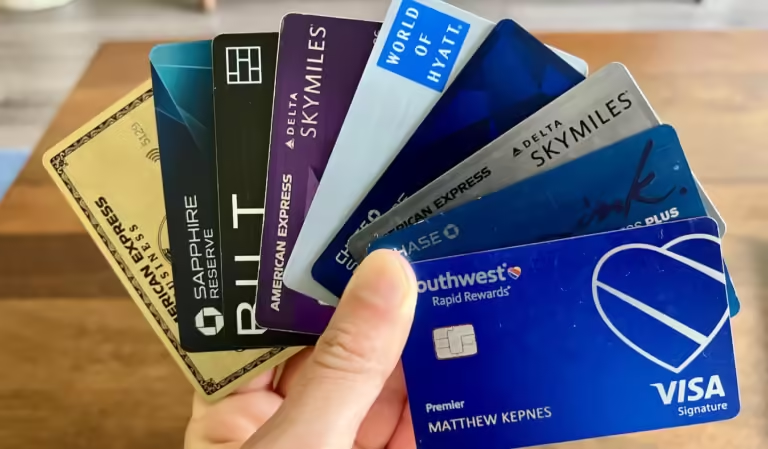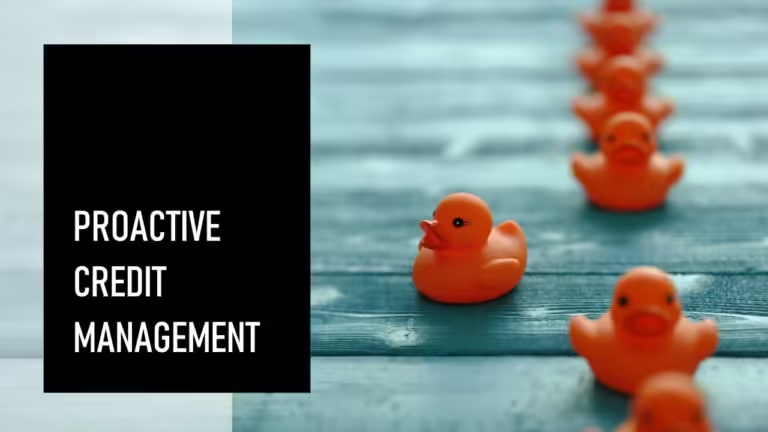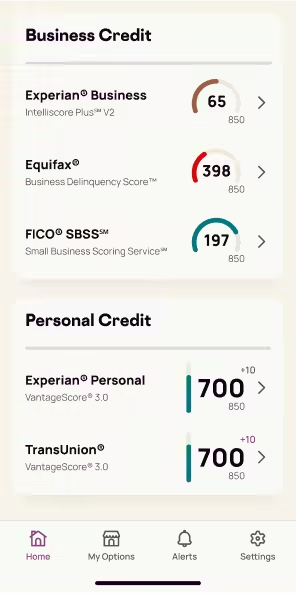Credit Card Fees Explained: Avoid Hidden Charges Now!
Credit card fees can be confusing. They often catch many cardholders by surprise.
Understanding these fees is crucial to manage your finances effectively. Credit cards offer convenience and flexibility, but they come with costs. These fees can quickly add up, affecting your budget. From annual fees to late payment penalties, knowing what to expect helps you avoid unnecessary charges. Credit card companies may not always clearly explain these fees, leaving you in the dark. This guide will break down the common types of credit card fees, helping you stay informed and make better financial decisions. Whether you’re a new cardholder or looking to optimize your existing credit cards, understanding these fees is essential. Stay tuned as we unravel the mysteries of credit card fees. For those looking to earn extra income, consider using platforms like Freecash. It offers various ways to earn money through tasks, surveys, and offers.
Introduction To Credit Card Fees
Credit cards offer convenience and flexibility, but they come with various fees. Understanding these fees is crucial for managing your finances effectively. This section will guide you through the different types of credit card fees and why you should be aware of them.
Understanding Credit Card Fees
Credit card fees can vary depending on the card and the issuer. Below are some common types of credit card fees:
- Annual Fees: Some cards charge a yearly fee for the privilege of using the card.
- Late Payment Fees: If you miss a payment, you may be charged a late fee.
- Balance Transfer Fees: Transferring a balance from one card to another can incur a fee.
- Cash Advance Fees: Withdrawing cash using your credit card usually comes with a fee.
- Foreign Transaction Fees: Using your card abroad may result in additional charges.
Why It’s Important To Know About These Fees
Knowing about credit card fees helps you avoid unexpected charges. This awareness can save you money and improve your financial health. Here are some reasons why understanding these fees is important:
- Budgeting: Being aware of fees helps you plan your budget better.
- Cost Savings: Avoiding unnecessary fees can save you a significant amount of money.
- Credit Score: Late payment fees can negatively impact your credit score.
- Smart Usage: Understanding fees encourages responsible credit card use.
By being informed about credit card fees, you can make smarter financial decisions and avoid costly mistakes.
Types Of Common Credit Card Fees
Understanding credit card fees is essential to manage your finances effectively. Various fees can apply to your credit card usage, impacting your overall costs. Here, we’ll explore the most common types of credit card fees to help you navigate them better.
Annual Fees
Some credit cards charge an annual fee for the benefits and rewards they offer. This fee is billed once a year. Not all cards have this fee, so it’s vital to check before applying.
Interest Rates And Aprs
Credit card interest rates are the charges applied to unpaid balances. The Annual Percentage Rate (APR) is the yearly interest rate. It’s crucial to pay off your balance each month to avoid these charges.
Late Payment Fees
If you miss a payment, you might incur a late payment fee. This fee can vary, but it’s typically a fixed amount. Always pay on time to avoid these extra costs.
Balance Transfer Fees
Transferring a balance from one card to another may involve a balance transfer fee. This fee is often a percentage of the transferred amount. Balance transfers can help manage debt, but factor in this cost.
Cash Advance Fees
Withdrawing cash using your credit card can lead to a cash advance fee. This fee is usually a percentage of the cash amount. Cash advances also attract high-interest rates immediately.
Foreign Transaction Fees
Using your card abroad might result in a foreign transaction fee. This fee is a percentage of the transaction amount. Some cards offer no foreign transaction fees, which is beneficial for travelers.
Hidden Credit Card Fees To Watch Out For
Credit cards offer convenience and rewards, but they can also come with hidden fees. These fees often catch cardholders by surprise. Understanding these charges can help you avoid unnecessary expenses.
Inactivity Fees
Some credit card issuers charge inactivity fees if you don’t use your card for a certain period. This fee can be a few dollars each month. To avoid this, make small purchases regularly.
Over-the-limit Fees
Exceeding your credit limit can result in over-the-limit fees. These charges can range from $25 to $35. To avoid this fee, monitor your credit limit closely. Set up alerts to notify you when you’re close to your limit.
Returned Payment Fees
If your payment bounces due to insufficient funds, you may face returned payment fees. These fees can be as high as $40. Ensure you have enough funds in your account before making a payment.
Paper Statement Fees
Many card issuers charge for paper statements. These paper statement fees can be up to $5 per statement. Opt for electronic statements to save money and help the environment.
| Fee Type | Typical Cost | How to Avoid |
|---|---|---|
| Inactivity Fees | $2 – $10/month | Make small regular purchases |
| Over-the-Limit Fees | $25 – $35 | Monitor your credit limit |
| Returned Payment Fees | $30 – $40 | Ensure sufficient funds |
| Paper Statement Fees | $2 – $5/statement | Opt for electronic statements |
Being aware of these hidden fees can save you money. Always read the fine print and stay informed about your credit card terms.

How To Avoid Credit Card Fees
Avoiding credit card fees can save you a lot of money. These fees can add up quickly and affect your financial health. Here are some practical tips to help you avoid these unnecessary costs.
Choosing The Right Credit Card
Not all credit cards are the same. Some cards have high annual fees, while others offer no-fee options. Look for a card that matches your spending habits. For example, if you travel often, consider a card with travel rewards and no foreign transaction fees. Always read the terms and conditions before applying for a card.
| Card Type | Annual Fee | Rewards |
|---|---|---|
| Travel Credit Card | $0 – $450 | Travel Points |
| Cash Back Credit Card | $0 – $95 | Cash Back |
| No Annual Fee Credit Card | $0 | Varies |
Setting Up Payment Reminders
Late payment fees can be a significant drain on your finances. Set up reminders to pay your credit card bills on time. You can use your phone’s calendar or an app to alert you before the due date. Many credit card companies also offer automatic payment options. This can ensure you never miss a payment.
Avoiding Cash Advances
Cash advances may seem convenient but come with high fees and interest rates. Use them only as a last resort. Instead, consider other options like personal loans or borrowing from friends or family. Cash advances often start accruing interest immediately, unlike regular purchases.
Utilizing Balance Transfers Wisely
Balance transfers can help you manage debt but come with fees. Look for cards offering 0% APR on balance transfers for an introductory period. Ensure you can pay off the balance before the promotional period ends. Calculate the balance transfer fee and compare it to the interest saved.
- 0% APR for 12-18 months
- Balance transfer fee: 3-5%
- Pay off balance before promotional period ends
Monitoring Your Credit Card Statements
Always check your monthly statements for errors or unauthorized charges. Dispute any mistakes as soon as possible to avoid unnecessary fees. Regular monitoring also helps you keep track of your spending. This can prevent you from exceeding your credit limit and incurring over-limit fees.
By following these tips, you can avoid most credit card fees and keep more money in your pocket.
Pros And Cons Of Credit Card Fees
Understanding credit card fees can help you make better financial decisions. They come with both advantages and disadvantages. Knowing these can guide your credit card usage and financial planning.
Benefits Of Understanding Credit Card Fees
Understanding credit card fees can help you avoid unnecessary charges. This knowledge empowers you to make informed decisions about which credit cards to use. Here are some benefits:
- Cost Savings: Avoiding fees can save you money.
- Better Card Selection: Helps in choosing cards with lower fees.
- Improved Credit Score: Managing fees can positively impact your credit score.
- Increased Rewards: Understanding fee structures can maximize reward points.
Being aware of annual fees, foreign transaction fees, and late payment fees can help in effective financial planning. This knowledge can turn potential pitfalls into advantages.
Drawbacks Of Mismanaging Credit Card Fees
Not managing credit card fees can lead to financial issues. Here are some drawbacks:
- Higher Costs: Unaware users may end up paying more in fees.
- Lower Credit Score: Late fees can negatively affect your credit score.
- Debt Accumulation: High fees can lead to accumulating debt.
- Missed Rewards: Mismanagement may result in losing potential rewards.
Unmanaged credit card fees can quickly add up. This can lead to financial stress. Always keep track of your credit card terms and conditions. Being proactive can save you from these drawbacks.
Recommendations For Credit Card Users
Understanding credit card fees can help you save money. Using the right strategies, tools, and practices ensures you get the most value from your credit card. Here are some key recommendations for credit card users.
Ideal Credit Card Practices
Following best practices can prevent unnecessary fees and improve your credit score. Here are some tips:
- Pay your balance in full: Avoid interest charges by paying off your balance each month.
- Set up automatic payments: Ensure payments are on time to avoid late fees.
- Check statements regularly: Identify and dispute any unauthorized charges.
- Maintain a low credit utilization ratio: Use less than 30% of your credit limit.
Best Scenarios To Use Credit Cards
Credit cards can be beneficial in specific situations. Here are the best scenarios to use them:
- Online purchases: Credit cards offer better fraud protection.
- Travel expenses: Many cards provide travel insurance and rewards.
- Recurring bills: Using a card for bills can help track expenses and earn rewards.
- Building credit: Responsible use of credit cards can improve your credit score.
Tools And Resources To Manage Fees
Several tools and resources can help manage credit card fees effectively:
| Tool/Resource | Description |
|---|---|
| Budgeting Apps | Track spending and set financial goals. |
| Credit Card Comparison Sites | Find the best card for your needs with lower fees. |
| Credit Monitoring Services | Keep track of your credit score and report. |
| Financial Calculators | Calculate interest, payoff times, and more. |
By following these recommendations, you can use your credit card wisely and avoid unnecessary fees.
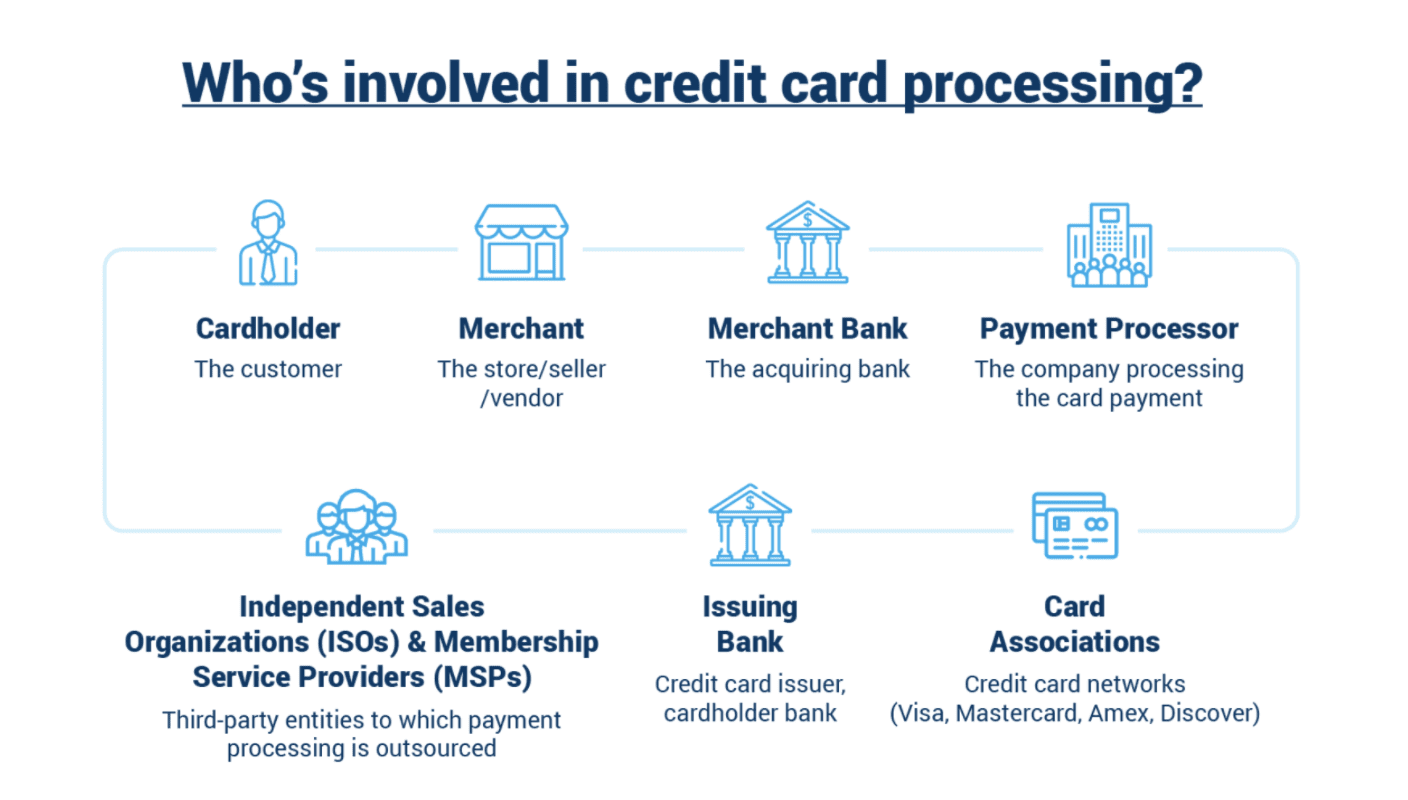
Frequently Asked Questions
What Are Common Credit Card Fees?
Common credit card fees include annual fees, late payment fees, balance transfer fees, and cash advance fees. Understanding these fees can help you manage your credit card more effectively.
How Can I Avoid Credit Card Fees?
To avoid credit card fees, pay your balance in full each month, make payments on time, and avoid cash advances. Additionally, choose a card with no annual fee.
What Is A Balance Transfer Fee?
A balance transfer fee is charged when you move debt from one credit card to another. This fee is typically a percentage of the amount transferred.
Are Foreign Transaction Fees High?
Foreign transaction fees usually range from 1% to 3% of the purchase amount. Choosing a card with no foreign transaction fees can help you save money when traveling abroad.
Conclusion
Understanding credit card fees helps you make smart financial decisions. Always read the terms. Avoid unnecessary fees by paying attention to details. Save money and protect your credit score. Interested in earning extra income from home? Check out Freecash. It offers flexible ways to earn money online. Use your knowledge wisely and enjoy financial freedom.

